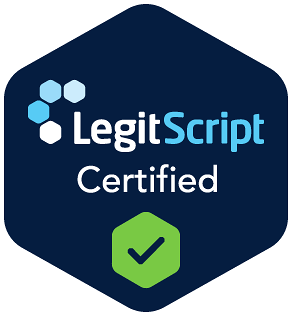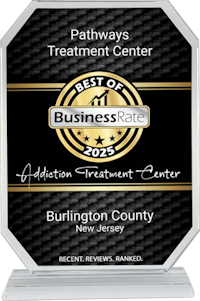Life Skills Program in New Jersey: Build Confidence and Independence After Addiction
Our Life Skills Program teaches clients practical tools for success beyond rehab. Whether you’re returning to the workforce, managing your finances for the first time, or building a healthy daily routine, life skills training helps you develop the independence and confidence needed for long-term recovery.
What Is a Life Skills Program in Addiction Recovery?
A Life Skills Program teaches the essential abilities that help individuals thrive in life after rehab. Addiction often disrupts education, employment, and relationships, leaving individuals unprepared to handle life’s demands without turning back to substances.
By building skills for independent living, our program supports clients in maintaining their recovery while enhancing their quality of life. These tools also play a key role in relapse prevention by reducing stress and building structure.

- Professional readiness and job skills
- Financial literacy and money management
- Healthy nutrition and meal planning
- Self-care, wellness, and stress management
- Academic support and continuing education
Our Life Skills Program is fully integrated with clients’ individualized treatment plans and complements both clinical therapy and our robust Outpatient Programs.
Job Readiness for Recovery: Career Development and Professional Readiness
Employment is a vital part of rebuilding self-esteem, financial stability, and a sense of purpose. Our job readiness for recovery services equips clients with the skills and confidence needed to pursue meaningful employment.
Career readiness training includes:
- Resume and cover letter writing: Tailored support to help clients create professional, recovery-friendly documents
- One-on-one job search assistance: Guidance on finding recovery-friendly employers and open opportunities
- Interview coaching: Practice sessions to build confidence and polish responses
- Workplace etiquette: Tips on professional communication, time management, and setting healthy boundaries at work
- Employment referrals: Partnerships with local businesses that support second-chance hiring
For clients re-entering the workforce after time away, these services offer critical support to ease the transition and promote success.
Budget Planning for Sober Living: Financial Management and Budgeting Skills
Financial instability is a common relapse trigger. Our Life Skills Program helps clients build budget planning for sober living to support lasting recovery.
Financial literacy training includes:
Learn how to track income and expenses to maintain financial stability
Practical skills for organizing and staying current on obligations
Develop both short- and long-term savings and spending strategies
Learn how credit works and how to use it wisely
Reducing money-related stress to protect recovery progress
Developing strong financial skills not only supports independence but also helps clients avoid the financial chaos that can drive relapse.
Meal Planning and Nutrition Education: Nutrition for a Healthy Lifestyle
Good nutrition plays an important role in physical and mental health, both of which are critical to sustainable recovery. Many people enter treatment with poor nutrition habits, which can contribute to fatigue, mood swings, and cravings.
Our meal planning and nutrition education services teach clients how to fuel their bodies for recovery success.
Topics covered include:
- Meal prepping: How to plan and prepare simple, affordable meals
- Grocery shopping on a budget: Creating smart shopping lists and choosing healthy ingredients
- Nutrition education: Understanding how food impacts energy, mood, and brain function
- Cooking skills: Basic cooking lessons to build independence and confidence in the kitchen
- Healthy eating for recovery: Using nutrition as a relapse prevention tool
Balanced nutrition supports physical healing, reduces cravings, and promotes emotional stability — all essential for long-term sobriety.

Self-Care Techniques and Stress Management in Recovery
Maintaining consistent self-care techniques is one of the most effective ways to support mental health and prevent relapse. Our Life Skills Program emphasizes stress management in recovery and the importance of healthy routines.
Clients learn to:
- Establish daily self-care routines: Personal hygiene, grooming, and sleep hygiene
- Practice time management: Structuring the day to support recovery goals
- Use mindfulness and grounding: Techniques such as breathing exercises, guided meditation, and body scanning
- Journal for emotional processing: Using writing as a healthy outlet for emotions
- Incorporate physical activity: How regular movement supports both mental and physical health
By building these self-care and wellness habits, clients learn to navigate daily life with greater balance, resilience, and emotional regulation.
Academic and Career Education Support
Education provides clients with a renewed sense of purpose and expanded career opportunities. Whether someone is completing their GED, applying to college, or pursuing vocational training, our Life Skills Program offers academic and career education support to help them succeed.
Support services include:
- GED preparation: Assistance for clients seeking their high school equivalency
- College application guidance: Help with applications, financial aid forms, and enrollment
- Technical training and certificate programs: Connections to local programs that build employable skills
- Continuing education planning: Identifying learning pathways that align with career goals
- College and high school readiness workshops: Providing clients with tools for academic success.
Investing in education builds confidence and creates future opportunities — both powerful motivators for sustained recovery. In addition to building skills for career and academic success, it’s equally important to strengthen the personal connections that support lasting recovery. That’s why our Life Skills Program also focuses on helping clients build and maintain healthy relationships.
Building Healthy Relationships in Recovery
Life after rehab isn’t just about managing sobriety — it’s also about building a strong foundation of healthy relationships that support your recovery. For many people, addiction damages relationships with loved ones, creates isolation, or fosters unhealthy patterns that must be addressed for long-term success.
The Life Skills Program at Pathways includes training to help clients develop and maintain healthy connections in their personal and professional lives. Supportive relationships can provide a powerful buffer against stress and are key components of effective Relapse Prevention.
Here’s how we help:
Strong relationships start with effective communication. Clients learn techniques such as active listening, expressing needs clearly, and responding to conflict constructively — skills that enhance both personal and professional interactions.
Maintaining recovery often requires setting new boundaries with friends, family members, and coworkers. Our program teaches clients how to identify unhealthy dynamics, protect their emotional well-being, and say no without guilt.
For many in recovery, an important part of healing is repairing damaged relationships. We help clients understand the importance of accountability, patience, and consistency in rebuilding trust with loved ones. Family therapy and guided conversations may also be recommended through our broader treatment services.
Social support is one of the strongest predictors of sustained recovery. Our Life Skills Program encourages clients to:
- Participate in 12-step or other recovery groups
- Engage with sober peers and supportive community members
- Explore alumni programs and ongoing group connections
- Establish a balanced support network of friends, family, and recovery mentors
By developing these relationship-building skills, clients strengthen both their emotional resilience and their ability to thrive in life after treatment.

Who Is the Life Skills Program For?
Our Life Skills Program is designed to support a wide range of clients at various stages of recovery. It is especially beneficial for:
- Residential clients preparing for independent living
- IOP and PHP participants stepping down from higher levels of care
- Young adults balancing school, work, and recovery simultaneously
- Clients with co-occurring mental health disorders, supported through our Dual Diagnosis Treatment program
Whether you’re building life skills for the first time or strengthening existing abilities, this program provides the structure and support needed for success after treatment.
Life Skills Program FAQs
Some of the most important life skills for addiction recovery include:
- Managing finances and budgeting
- Preparing for employment
- Building healthy routines
- Managing stress without substances
- Practicing self-care and maintaining wellness
- Developing strong communication skills
Yes. Pathways’ Life Skills Program includes comprehensive job readiness for recovery services, such as resume help, interview coaching, and professional communication training.
Absolutely. Life skills for addiction recovery help reduce relapse risk by building confidence, promoting independence, and equipping individuals with tools to manage daily challenges without turning to substances.
Yes. Our Life Skills Program is fully integrated into Outpatient Programs and other levels of care, helping clients at every stage of the recovery process.
How to Enroll in the Life Skills Program
At Pathways, life skills training is integrated into our Outpatient Programs, as well as our broader continuum of care. It is not offered as a standalone program but is included in individualized treatment plans based on each client’s needs and recovery goals.
Enrollment steps:
- Talk with your care team about including life skills as part of your treatment
- If you’re new to Pathways, our Admissions specialists can explain how the program fits into your overall care
- Clients in outpatient care can access life skills services throughout their treatment journey
The ability to manage daily life, pursue meaningful goals, and maintain healthy relationships is key to long-term success. Our team is here to help you develop these skills and thrive in recovery. Contact us today to get started.



